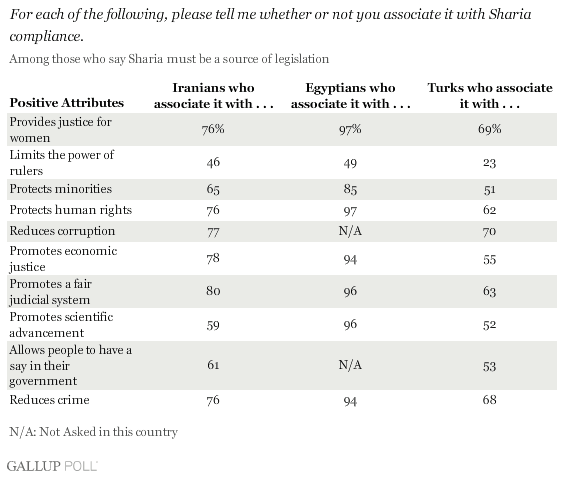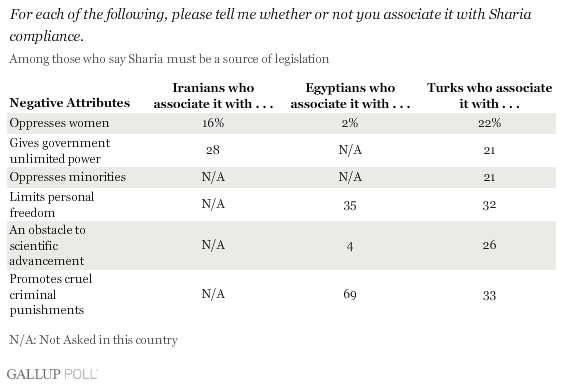AUz
ELITE MEMBER

- Joined
- Sep 14, 2010
- Messages
- 8,595
- Reaction score
- -12
- Country
- Location
Despite being a politically secular country for almost a century, Turkey has remained a remarkably Muslim nation in its culture, traditions, and identity--especially compared to European countries where secularism swept away Christianity. This thread will discuss Turkish culture, values, society, norms, and attitudes of Turkish people--in the context of the prevailing central social cultural force in Turkey--Islam.
Let's see how much influence Islam enjoys in the public/personal life of Turks living in the Republic of Turkey. All the data is from PEW's global surveys and studies on morality and religious values.
Importance of Islam for common Turks
88% of Turks (males and females) regarded Islam as an important part of their lives (67% of Turkish Muslims regarded Islam as "very important" in their lives, and 21% more answered Islam is "important" in their lives)
Attendance of religious services
44% of Turks attended religious services at Mosques atleast once a week (This figure does not include Turkish women who, by tradition, mostly pray at home and do not have Mosques for them in many places).
Performing of prayers and Islamic rituals
77% of Turks can be deemed as quite religious who perform their ritual Islamic prayers regularly for the most part (60% of Turkish Muslims pray daily! Furthermore, 11% pray several times a week, and 6% more pray atleast once every week)
Belief in God deemed necessary to be a good moral person
70% of Turkish Muslims (males and females) believe that believing in Allah ) is necessary to be a moral person and have good values in life
Unanimous rejection of Homosexuality
85% of Turkish people regard homosexual behavior as completely morally unacceptable (abiding by the traditional/classical Islamic views towards the issue)
Universal rejection of extra-marital sexual relations
91% of Turkey's citizens completely rejected the notion of sex outside marriage
Support for Alcohol consumption is limited
70% of Turks regarded drinking Alcohol as morally unacceptable. However, 17% of Turks found it acceptable if others drink alcohol.
A slight majority held unfavorable view of abortion
52% of Turks viewed abortion as unacceptable/morally wrong (Islam's stance on abortion is very moderate/relaxed compared to Catholicism etc. Abortion is allowed within 120 days according to most scholars)
Overwhelming majority spoke against forcing religion on people
90% of Turkish Muslims believed that women should have the right to decide whether they want to wear a hijab/veil
Plurality of Turks regarded Western pop culture's effect on Turkey as Negative
50% of Turkish people surveyed believe that Western music, movies, and television shows have a negative impact on the moral fabric Turkish society.
Sources: http://www.globalreligiousfutures.org/explorer
http://www.pewforum.org/2013/04/30/the-worlds-muslims-religion-politics-society-morality/
=========================
Turkey is very Islamic in its culture, beliefs, societal norms, practice, and identity. Political secularism did not create a secular society in Turkey....as was the case in Christian majority nations of Europe, North America, Australia, and Latin Americas. All major Muslim countries throughout the world are deeply Islamic in nature. The secular Turkey seems to be no exception (although it might be less religious comparitively to Islamic states such as Iran, Saudi Arabia, Pakistan etc...but from international standpoint, Turkey remains a very comitted Muslim nation).
Let's see how much influence Islam enjoys in the public/personal life of Turks living in the Republic of Turkey. All the data is from PEW's global surveys and studies on morality and religious values.
Importance of Islam for common Turks
88% of Turks (males and females) regarded Islam as an important part of their lives (67% of Turkish Muslims regarded Islam as "very important" in their lives, and 21% more answered Islam is "important" in their lives)
Attendance of religious services
44% of Turks attended religious services at Mosques atleast once a week (This figure does not include Turkish women who, by tradition, mostly pray at home and do not have Mosques for them in many places).
Performing of prayers and Islamic rituals
77% of Turks can be deemed as quite religious who perform their ritual Islamic prayers regularly for the most part (60% of Turkish Muslims pray daily! Furthermore, 11% pray several times a week, and 6% more pray atleast once every week)
Belief in God deemed necessary to be a good moral person
70% of Turkish Muslims (males and females) believe that believing in Allah ) is necessary to be a moral person and have good values in life
Unanimous rejection of Homosexuality
85% of Turkish people regard homosexual behavior as completely morally unacceptable (abiding by the traditional/classical Islamic views towards the issue)
Universal rejection of extra-marital sexual relations
91% of Turkey's citizens completely rejected the notion of sex outside marriage
Support for Alcohol consumption is limited
70% of Turks regarded drinking Alcohol as morally unacceptable. However, 17% of Turks found it acceptable if others drink alcohol.
A slight majority held unfavorable view of abortion
52% of Turks viewed abortion as unacceptable/morally wrong (Islam's stance on abortion is very moderate/relaxed compared to Catholicism etc. Abortion is allowed within 120 days according to most scholars)
Overwhelming majority spoke against forcing religion on people
90% of Turkish Muslims believed that women should have the right to decide whether they want to wear a hijab/veil
Plurality of Turks regarded Western pop culture's effect on Turkey as Negative
50% of Turkish people surveyed believe that Western music, movies, and television shows have a negative impact on the moral fabric Turkish society.
Sources: http://www.globalreligiousfutures.org/explorer
http://www.pewforum.org/2013/04/30/the-worlds-muslims-religion-politics-society-morality/
=========================
Turkey is very Islamic in its culture, beliefs, societal norms, practice, and identity. Political secularism did not create a secular society in Turkey....as was the case in Christian majority nations of Europe, North America, Australia, and Latin Americas. All major Muslim countries throughout the world are deeply Islamic in nature. The secular Turkey seems to be no exception (although it might be less religious comparitively to Islamic states such as Iran, Saudi Arabia, Pakistan etc...but from international standpoint, Turkey remains a very comitted Muslim nation).







 Appreciated!
Appreciated!


